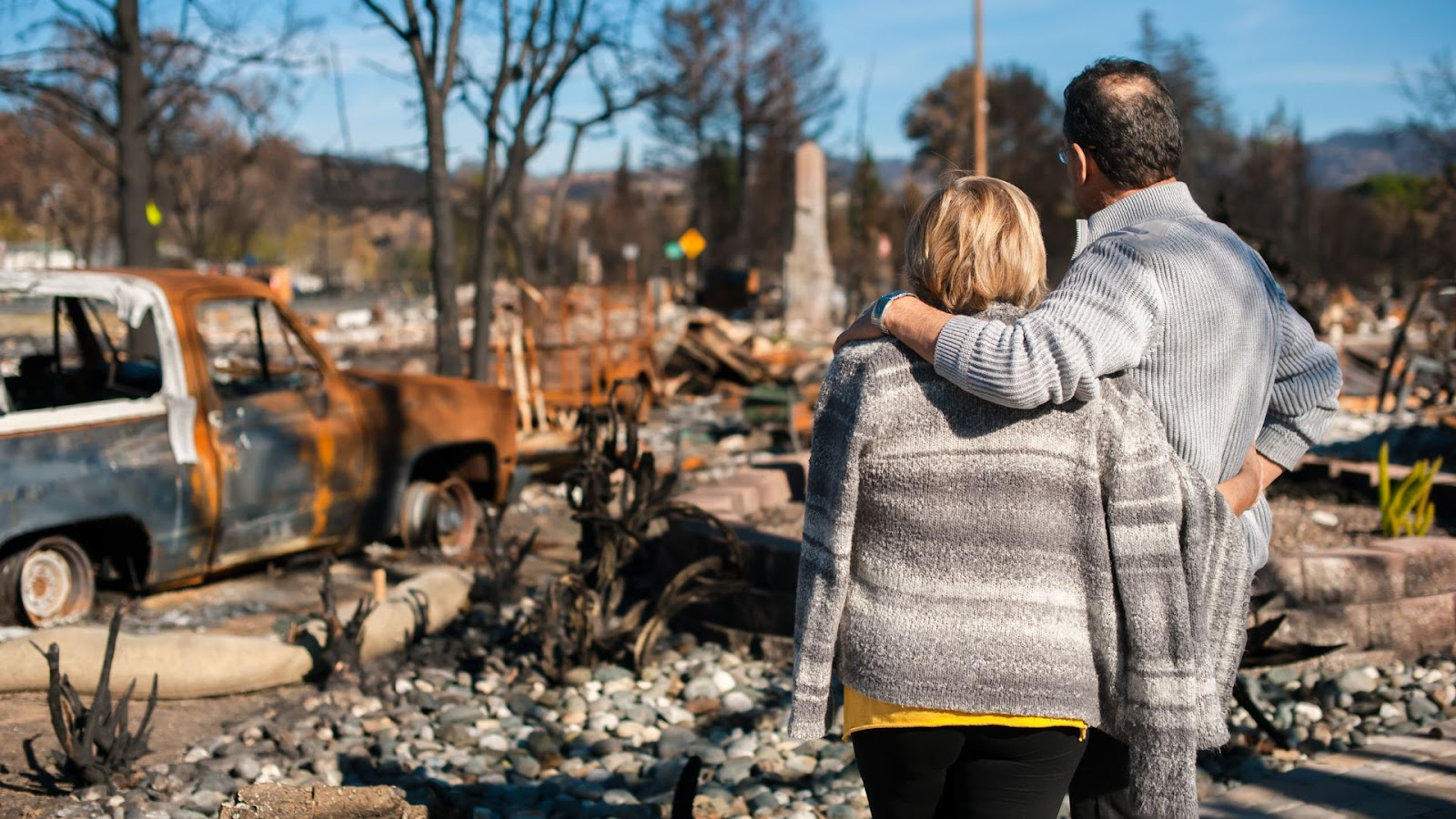Money
Insurance: smart protection or money down the drain?

Insurance feels like one of those boring “adulting” chores… until you need it. Here’s why cover matters, what kinds to consider and how to avoid paying for more than you need.
By Bron Maxabella
It’s human nature to think nothing bad will happen to us. We’re careful. We’re responsible. We eat our greens (mostly) and wear sunscreen (when we remember). Surely the universe will reward us for our efforts with a crisis-free existence?
Not quite.
The truth is, most of us walk through life wearing optimism-tinted glasses. We think we’ll stay healthy, our home will stay standing, our car will behave itself and our income will keep rolling in like always. It’s not naïve – it’s just how we’re wired. But it’s also why so many of us delay getting proper insurance.
We don’t want to spend money protecting ourselves from a future we can’t quite imagine.
The future is foggier than you think
Psychologists say we’re pretty bad at predicting what’s ahead. In fact, we have an inbuilt optimism bias that basically assumes that tomorrow will look like today. We picture ourselves older, maybe a bit greyer, but still more or less the same. We struggle to imagine what we might really need and we’re shockingly good at convincing ourselves that everything will work out anyway.
And you know what? Most of the time, it does work out.
We’re remarkably resilient, even in the face of trauma or tragedy. People bounce back from house fires, health scares, job losses and all the other curveballs life throws. Eventually. But bouncing back is a lot easier when you’re not also drowning in debt or trying to rebuild your life from scratch with nothing in your corner but a Woolies rewards card and a wish.
That’s where insurance steps in
Insurance won’t stop bad things from happening. But it will stop them from completely derailing your life.
It gives you breathing room by covering the gap between “oh no” and “I’ve got this”. Whether it’s a hospital bill, a written-off car, or a burst pipe that floods the new carpet you just had laid, insurance turns a crisis into a manageable situation.
It’s not about fear; it’s about preparation and setting yourself up so that you – or the people you love – can keep going when things go sideways.
The types of insurance that matter most
Which policies you choose will depend on your life stage, health, income and assets. Here’s a quick run-through of what’s out there:
Life insurance
Life insurance is really about making sure your loved ones aren’t left struggling if something happens to you. It can cover a range of scenarios — not just death, but also serious illness, permanent disability or a loss of income due to injury. There are a few types:
- Life cover pays a lump sum to your nominated beneficiary if you pass away.
- Total and permanent disability (TPD) cover pays if you’re permanently unable to work due to illness or injury.
- Trauma insurance covers specific major illnesses like cancer or stroke.
Some of these are included in your super by default, but the cover may not be enough or may not be suited to your current life stage. It’s worth checking the details and deciding if you need additional cover outside of super to properly protect yourself and your family.
Life insurance might feel heavy to think about, but knowing your people will be financially okay, no matter what, makes it worth the angst.

Income protection
Pays a portion of your wage if you’re unable to work due to illness or injury. It’s often tax-deductible and it can be the buffer that stops you having to access your super earlier than you planned – two-thirds of us will leave work earlier than expected and either your own or your partner’s health concerns will likely be the reason why.
Health insurance
We’re lucky in Australia to have Medicare which covers doctor visits, public hospital care and a range of essential treatments. But private health insurance can help fill the gaps, reduce waiting times and give you more choice over your healthcare.
There are two main types of private health cover:
- Hospital cover, which pays for treatment and accommodation in a private hospital (or as a private patient in a public one).
- Extras cover, which helps with out-of-hospital costs like dental, physio, optical, chiro and more.
Why take it out? Because waiting months for a knee replacement or paying out-of-pocket for root canal isn’t fun and neither is needing urgent treatment and having no say over when, where or by whom it’s done. Some people also take out private health to avoid paying the Medicare Levy Surcharge or Lifetime Health Cover loading. But for most, it’s about peace of mind and timely care.
Read Nicole’s story on how health insurance saved her life.
Home insurance
Protects the structure of your home: the bricks, mortar, roof, pipes and fixtures, or all the stuff you usually can’t just pick up and take with you. Vital if you own property and required by most lenders if you have a mortgage.
A good policy covers everything from repairs to rebuilding costs, temporary accommodation while your home is being fixed and even things like damage caused by falling trees or burst pipes. Some policies will also cover legal liability, so if someone slips on your driveway and decides to sue you, you're not left footing the bill.
Read 10 ways to maximise your chances of having a successful home insurance claim.

Contents insurance
Contents insurance covers the things that make your house feel like home – furniture, appliances, clothing, jewellery, electronics and the artwork on your walls. If it’s not bolted down, chances are contents insurance can cover it. This kind of insurance is especially important if you’d struggle to replace all your belongings out of pocket after a fire, theft or accidental damage (and let’s be honest, most of us would). You don’t always need to insure every last thing, either. Some people choose to cover only the essentials they’d need to get back on their feet.
Here’s how to get the most out of your contents insurance.
Compulsory third-party (CTP) car insurance
CTP insurance is a legal requirement in every Australian state and territory – you can’t register your car without it. It’s designed to cover the medical costs and compensation if you injure or kill someone in a car accident, whether they’re in another vehicle, a pedestrian, cyclist or passenger. It’s what protects you from massive personal injury claims that could otherwise bankrupt you.
Just know that CTP won’t cover damage to vehicles or property (yours or anyone else’s), and it definitely won’t fix your car. In some states it’s bundled with your registration, in others you choose your own CTP insurer. Either way, you can’t drive without it.
Third-party property car insurance
Covers damage you cause to someone else’s vehicle or property, but not your own. So if you reverse into a Tesla, you won’t be out of pocket for their repairs, but you’ll be covering your own dents.
This is a more affordable option if your car isn’t worth much but you still want to avoid big bills from other people’s luxury car choices. Some policies include limited cover for damage to your own car if the other driver is uninsured and at fault – a helpful extra to look out for.
Comprehensive car insurance
This is the big one. It covers damage to your car, other people’s cars and even property like fences or buildings should you really go off the rails. It also usually includes theft, fire, vandalism, storm damage and sometimes extras like towing or a hire car.
Want to know more about how to get the most out of your car insurance?
If your car is worth repairing or replacing, comprehensive is the safest bet. It's the cover you want when a shopping centre pole jumps out of nowhere, or a hailstorm goes to town on your roof. The cost varies based on your car’s value, where you live and your driving history, so it pays to shop around.
Comparing insurance policies can save you a whole lot of money.
Travel insurance
Travel insurance is one of those things you hope you’ll never need, but when you do, you’ll be very glad you’ve got it. It can cover medical emergencies, cancelled flights, lost luggage, stolen passports and all the other dramas that can turn a dream holiday into a logistical nightmare.
Some countries require proof of travel insurance before they’ll let you in. And overseas medical costs can be financially devastating especially in places like the US, where a visit to the ER can cost thousands.
Policies vary, so check what’s covered (especially if you have a pre-existing health condition or you're big on leisurely past-times like bungee jumping or white water rafting).
Here are some great ways to save money on your upcoming trip.
A soft place to land
Insurance might feel like one of those grown-up expenses you’d rather not think about. It might even feel like a waste of money – until the day you need it.
No one plans for their house to flood, or their back to go, or their suitcase to end up in Helsinki when they’re in Hobart. But planning for the possibility? That’s just smart. And remember: review your policies regularly, shop around and don’t be afraid to ask questions to ensure you’re fully covered.
So yes, you really do need insurance. Maybe not all of it, and maybe not all at once, but enough to protect the life you’ve worked hard to build.
This article reflects the views and experience of the author and not necessarily the views of Citro. It contains general information only and is not intended to influence readers’ decisions about any financial products or investments. Readers’ personal circumstances have not been taken into account and they should always seek their own professional financial and taxation advice that takes into account their personal circumstances before making any financial decisions.
Feature image: iStock/skynesher
Tell us in the comments below: Which type of insurance would you ditch first if you could?

More paths to peace of mind:
